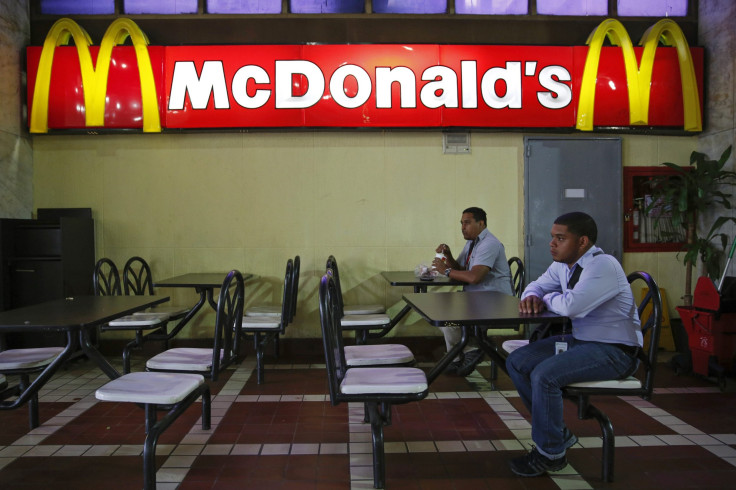Fired McDonald’s Employees Were Told ‘Too Many Black People’ Worked There, Lawsuit Claims

A group of former McDonald’s workers say they lost their jobs with the burger behemoth after being told in part that their racial background was preventing them from meeting the company’s standards for employment. The 10 plaintiffs, who on Thursday collectively filed a federal civil rights lawsuit in the U.S. District Court for the Western District of Virginia, also claim that they were subjected to sexual discrimination and harassment.
The lawsuit alleges that the workers at three separate McDonald’s franchises in Virginia were fired at the same time in May because "there are too many black people" working in the stores. Other allegations include inappropriate comments and physical actions made from and by supervisors. Katrina Stanfield, who worked at the South Boston, Virginia, restaurant location and was promoted from a cashier to a shift manager, said she was abruptly fired after one and a half years of employment despite having never faced any prior disciplinary actions. “Being a good worker didn’t matter,” Stanfield said in a conference call Thursday. “I was being fired for being black.”
The Rev. Kevin Chandler, president of the South Boston Chapter of the NAACP and vice president of the NAACP Virginia State Conference, said the black former employees suffered months of racial harassment and were routinely told by management that the restaurants wanted more white people working there. "They wanted nonwhite workers out of the store, period," he said.
Stanfield said one of her supervisors would regularly make inflammatory comments to her, such as “We need to get the ghetto out of the store.” She also claimed another supervisor would touch workers inappropriately and send them nude pictures of himself. Stanfield, who said her individual complaint to McDonald’s has still gone unacknowledged, lamented that things might be different for her if fast-food workers had the right to unionize.
Thursday's lawsuit comes on the heels of another related debate over where the responsibility lies for how McDonald’s workers are treated -- the franchisees or the umbrella corporation. The issue of joint employers was put on front street this past summer after the National Labor Relations Board ruled that McDonald’s could be held responsible along with its franchisees for labor violations. Late last year, the NLRB issued formal complaints against both McDonald’s franchise owners and their parent company that echoed its ruling.
McDonald’s Corporation has in the past said that the owners of individual franchises are solely responsible for how their workers are treated and disciplined, but some labor experts disagree with that sentiment. “All too often, corporate franchisors like McDonald’s control everything until there is a problem with their workers,” said Christine Owens, executive director of the National Employment Law Project, in a written statement. “Then, suddenly, they are not responsible and plead ignorance. But despite its repeated assertions that it has no control over its workers, all the evidence points to the fact that McDonald’s is indeed the boss. And the encouraging thing here is that means the $5.6 billion company has the power to fix this.”
These developments are likely not welcome news for McDonald’s Corporation, which has experienced declining companywide sales since this past summer. A request to McDonald’s Global headquarters seeking comment was not immediately returned Thursday.
© Copyright IBTimes 2025. All rights reserved.






















